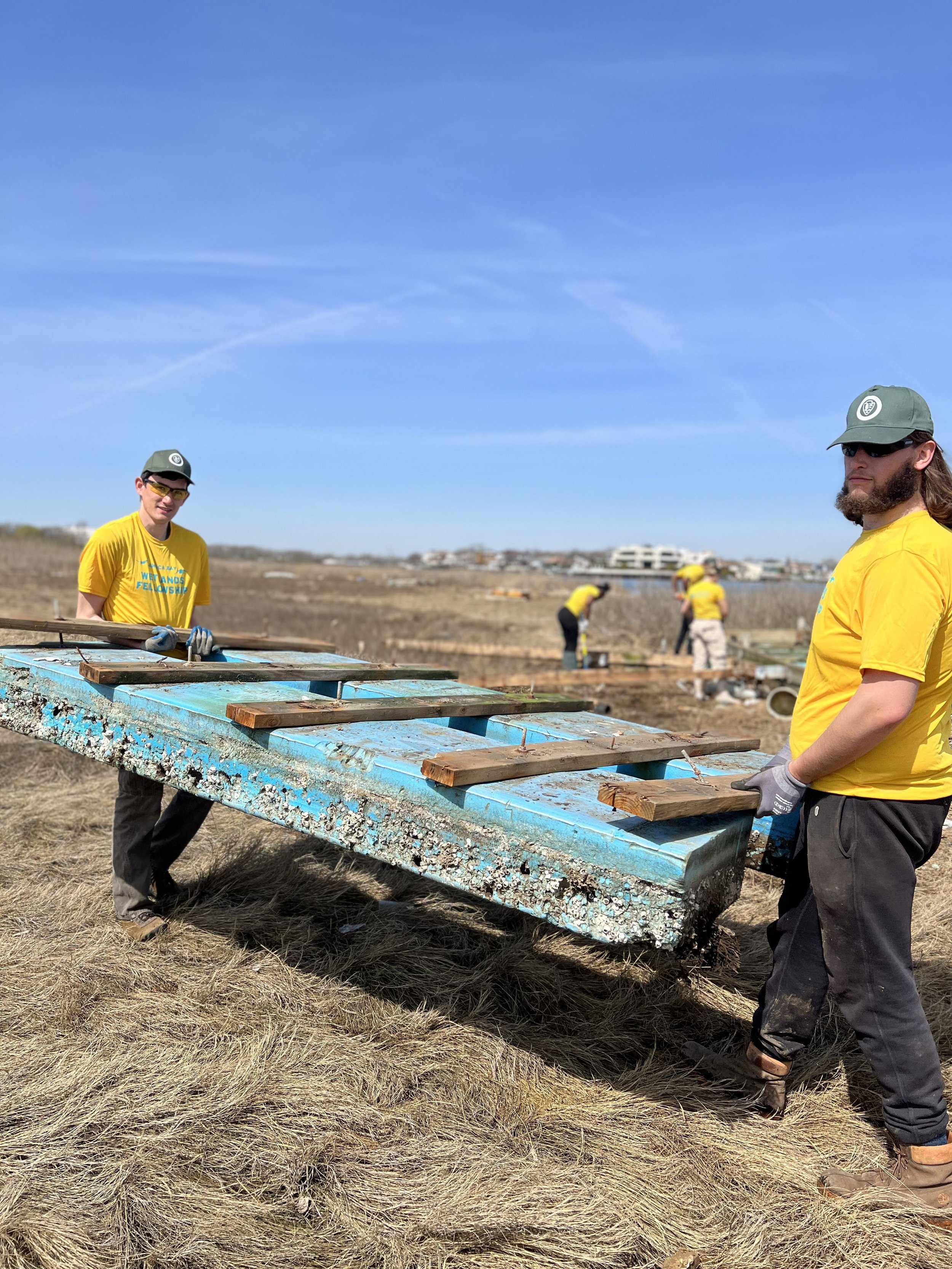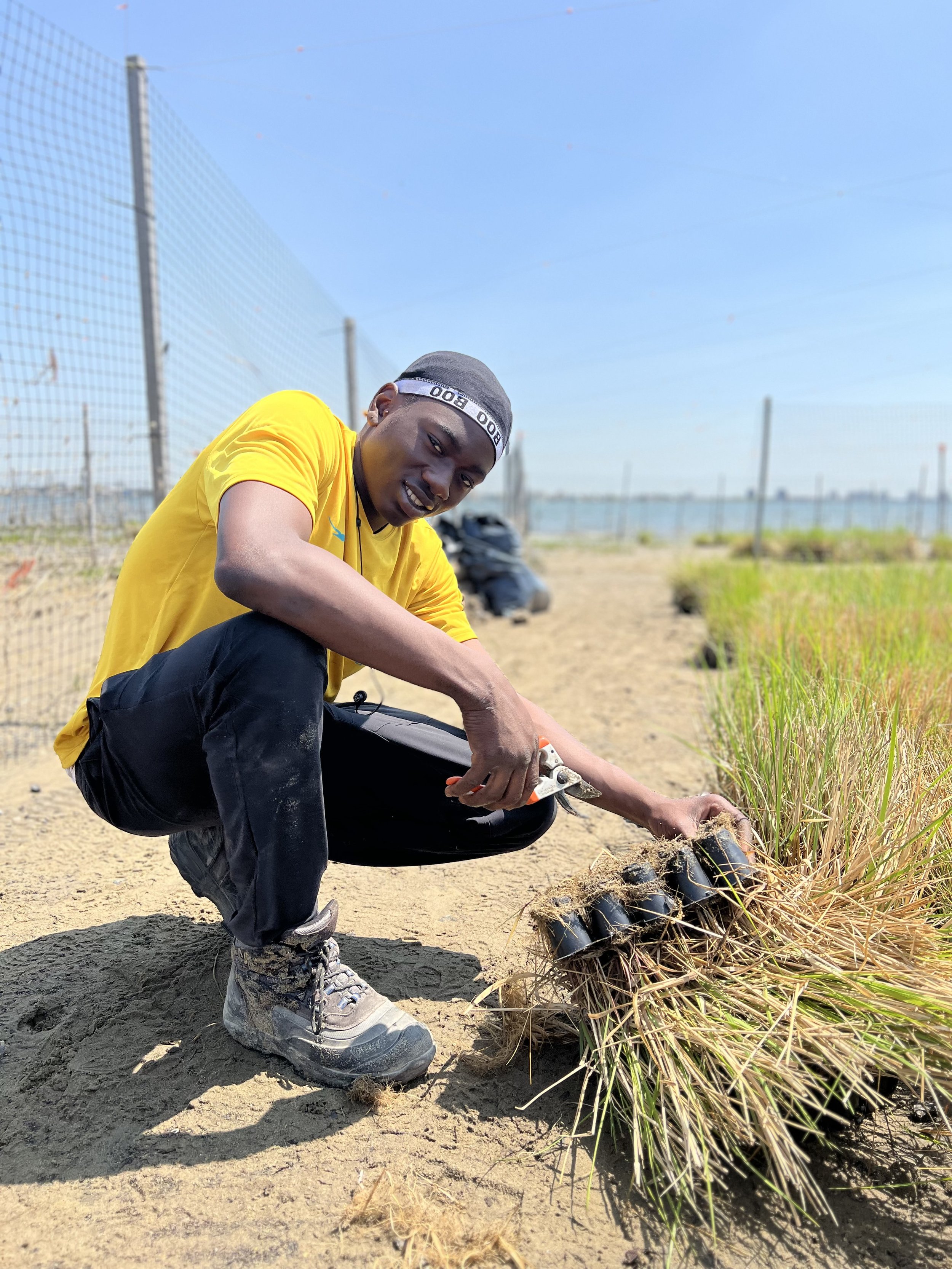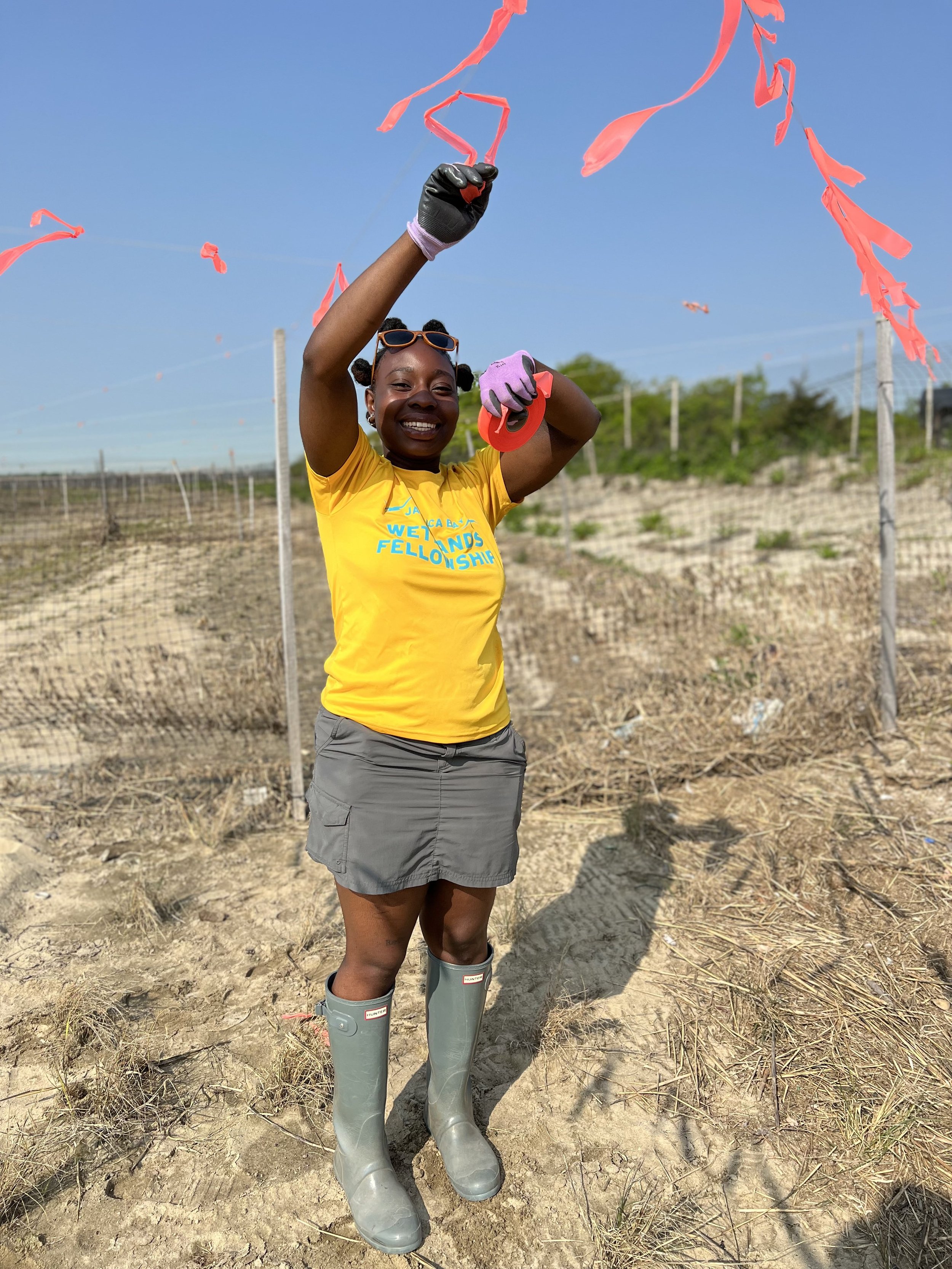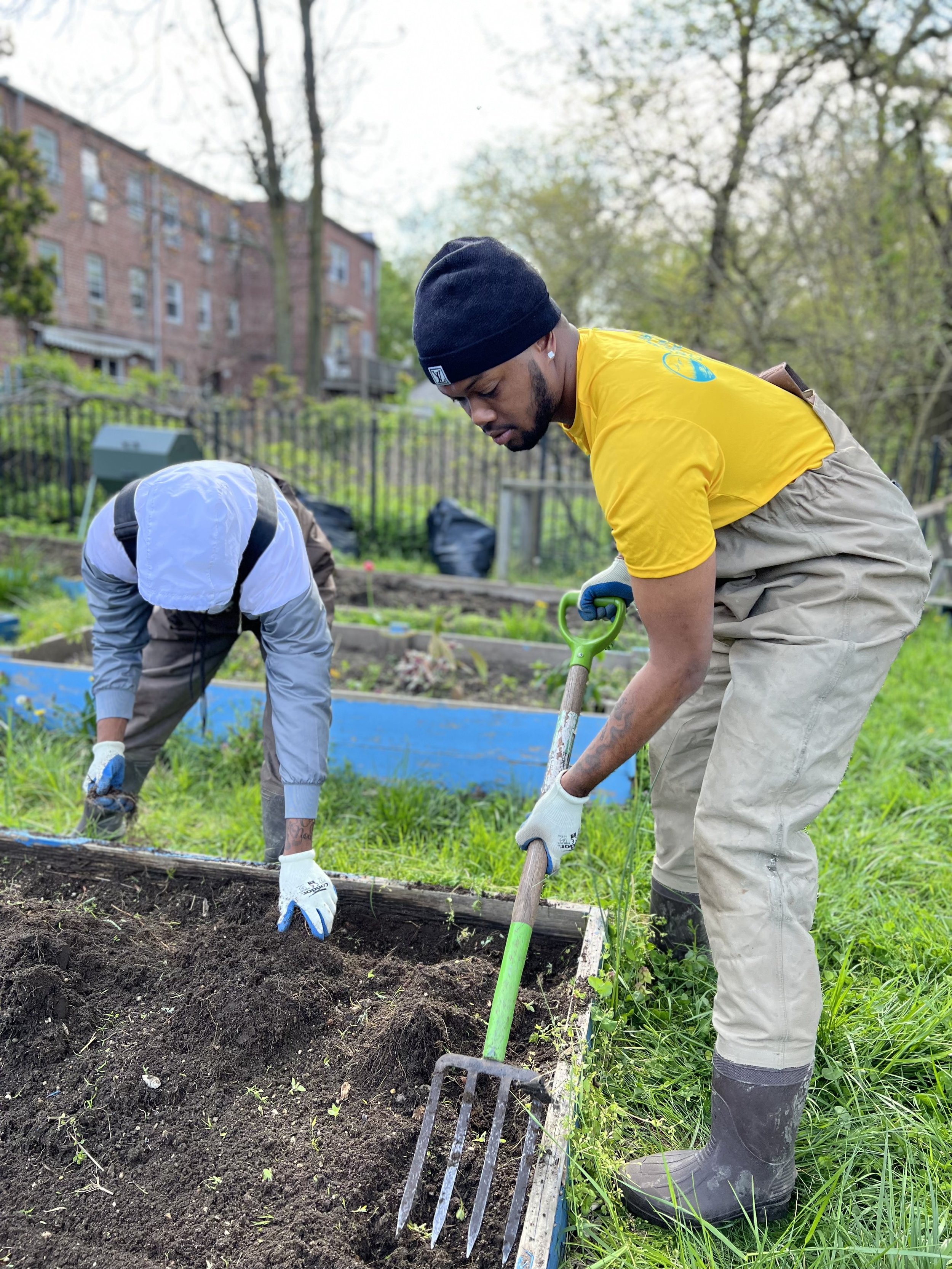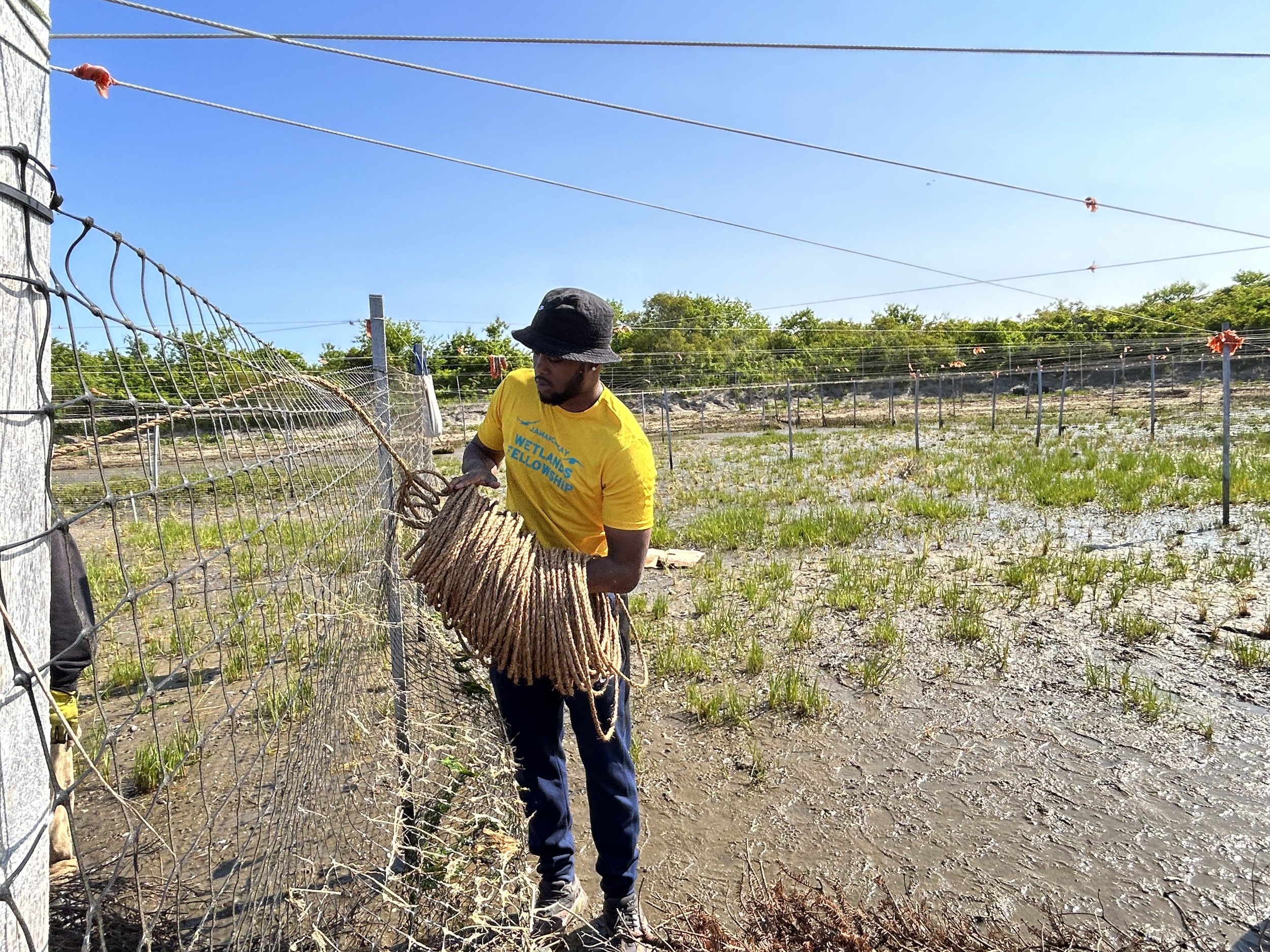
JAMAICA BAY WETLANDS FELLOWSHIP
The Jamaica Bay Wetlands Fellowship will train the next generation of wetland managers, building skills and defining a career path for young people within the diverse communities surrounding Jamaica Bay.
Advancing nature-based jobs and a wetlands-focused workforce within the Jamaica Bay watershed
Wetlands Fellowship Program Goals
-
Develop a local workforce of young adults with the technical and leadership skills to maintain and manage high-value tidal wetlands and nature-based restoration projects
-
Use wetlands, one of the world’s most productive ecosystems, to foster critical, ecological thinking that informs adaptive management techniques for nature-based solutions
-
Integrate local stakeholder knowledge and community values to form a holistic understanding of conservation and restoration needs and potential solutions
-
Invest in communities most impacted by climate change, increasing their resilience through equitable opportunities for education and employment
-
Demonstrate the value of wetlands maintenance for long-term project success to drive additional investments and policy that creates and sustains these vital nature-based jobs
JBRPC
knows first-hand that maintenance is essential for nature-based wetland projects to succeed on a long-term basis
-
The Jamaica Bay Wetlands Fellowship is a paid 6-month workforce development and job training program for young adults (ages 18–25) focused on skills related to wetlands maintenance, monitoring, and restoration. The curriculum will underscore the value of both technical and stakeholder experience in building comprehensive knowledge and approaches toward nature-based solutions while building local leadership for the future.
-
Jamaica Bay is New York City’s largest open space – an unparalleled oasis of nature comprising 26 square miles of tidal wetlands, marsh islands, and coastal habitats that protect people and wildlife, offer unique recreation and education opportunities, and provide vital waterfront and open space access for all New Yorkers.
Jamaica Bay is also at the heart of the climate crisis in New York City. Despite its vast natural resources, surrounding frontline communities experience poor air quality, underemployment, flooding and erosion, insufficient transit options, and lack of waterfront and open space access. Wetlands are among the most productive ecosystems in the world – along with rainforests and coral reefs; yet more than half of Jamaica Bay’s marshlands have disappeared over the last century as a direct result of human activity. While there have been vast multi-million dollar investments to restore Jamaica Bay marshlands and other wetland habitats to address climate-related issues, there isn’t sufficient funding or a trained workforce focused on managing and maintaining these systems over the long term.
-
The Jamaica Bay Wetlands Fellowship is a collaborative, stakeholder driven response to an immediate need: a local workforce with sufficient skills and capacity to maintain, monitor, and manage wetland restoration projects. Designed to complement other programs focused on science and research or stewardship, the Wetlands Fellowship is specifically built to meet the demand for a “diverse, equitable workforce skilled in building nature-based solutions,” one of five strategic areas for action in the Biden-Harris Administration’s Nature-Based Solutions Roadmap.
To provide a robust and rigorous experience that will best position Fellows for future nature-based jobs, JBRPC will leverage our partnerships with city, state, and national park and other government agencies, and our relationships with a multitude of community stakeholders and academic and research partners.
-
While routine maintenance, including removing debris or trash, can be performed by community volunteers or an unskilled workforce, significant value maintenance activities such as project area monitoring, replanting, removing accumulated sediment and wrack, plant viability assessment, natural recruitment studies, and wildlife monitoring requires skilled labor and expertise. Qualified technicians with experience in planning, installing, maintaining, and monitoring wetland projects are necessary to ensure the long-term success of critical nature-based interventions.
Fellows work on critical wetland projects around Jamaica Bay
Bayswater Point State Park
Canarsie Pier
Floyd Bennett Field Native Plant Nursery
Four Sparrow Marsh
Hook Creek
Jamaica Bay Wildlife Refuge - West Pond
Marine Park
Paedergat Basin
Plumb Beach
Shirley Chisholm State Park
Sunset Cove




